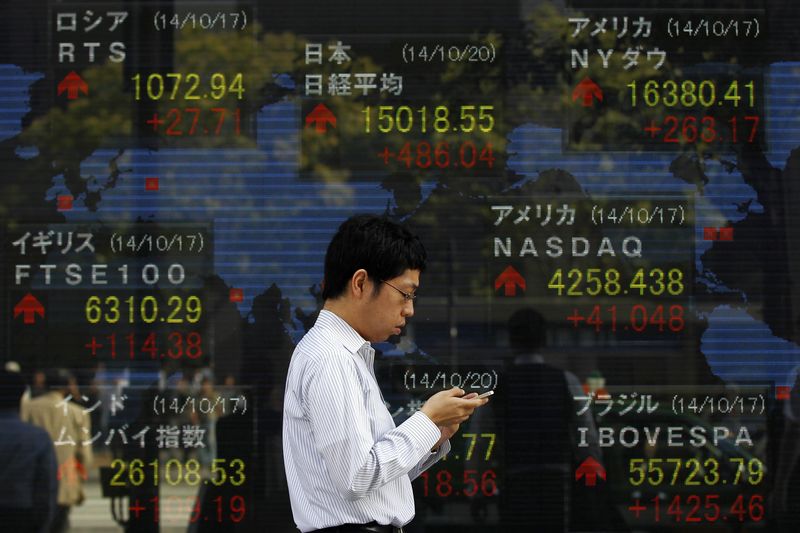(Bloomberg) -- Interest rates are on hold in Asia this week as central banks give themselves more time to assess the return of market volatility in emerging markets.
Thailand and Indonesia are expected by most economists surveyed to hold their ground, following in the steps of Malaysia last week. Sri Lanka will also probably keep rates unchanged, while it’s a close call for the Philippines with almost half of the analysts calling for another increase.
After a brief lull that’s helped the region’s worst-hit currencies recover, the rout in emerging markets has returned and central banks may once again come under pressure to raise interest rates. The Federal Reserve is set to continue on its aggressive tightening path when it next meets in December, making it likely that the pause in rate hikes in Asia will be temporary.
“Given the recent improvement in sentiment, we expect central banks in the region to keep the powder dry at their respective policy meetings,” said Nicholas Mapa, senior economist at ING Groep (AS:INGA) NV in Manila.
Fears of a trade war “appear to be overblown” and the recovery in regional currencies gives policy makers “the leeway to pause and live to fight” another round of Fed rate hikes, he said.
Here’s what to watch for in the statements:
Thailand
While Bank of Thailand has indicated its intention to raise its key rate, which has been at 1.5 percent since 2015, most economists doubt they will start this week. Sixteen of 20 analysts predict officials will stand pat on Wednesday.
The economy is facing risks including a drop in exports and manufacturing, and a slowdown in tourism. Inflation was at a six-month low of 1.23 percent in October.
“There is no rush to raise the rate now when the downside bias of the economy seems to be rising and inflation remains benign,” said Thanomsri Fongarunrung, an economist at Phatra Securities Pcl in Bangkok, adding that the next meeting in December “will be a close call.”
Indonesia
Bank Indonesia’s efforts to stabilize the currency, including 150 basis points of rate hikes since May, are starting to pay off. The rupiah has gained more than 2 percent against the dollar in the past month, the best performer in Asia.
Of the 26 economists surveyed, 23 predict the key rate will be unchanged at 5.75 percent on Thursday. The rest expect a hike of 25 basis points.
Inflation remained subdued at 3.16 percent in October and well within the central bank’s 2.5-4.5 percent target range. Still, Indonesia is not out of the woods with a widening current-account deficit highlighting the economy’s vulnerability to outflows, and some economists predict more rate hikes ahead.
“It is indeed a temporary pause as we expect BI to hike alongside the U.S. Fed,” said Mohamed Faiz Nagutha, an economist at Bank of America Merrill Lynch (NYSE:BAC) in Singapore, who predicts the rate will reach 6 percent by the end of this year.
Philippines
With inflation still a threat, economists are split with 11 of 19 predicting a hike in the Philippine benchmark rate to 4.75 percent on Thursday.
The central bank, which has boosted the rate 150 basis points since May, has left open the prospect of another round of policy tightening, while in the same breath flagging the chances for a hold.
“Despite the spate of hikes, real policy rates remain deeply in the red and further policy response is called for,” said Eugenia Victorino, head of Asia strategy at Skandinaviska Enskilda Banken AB in Singapore. “While headline inflation seems to have already peaked, it will take some time before it eases back into the target range.”
